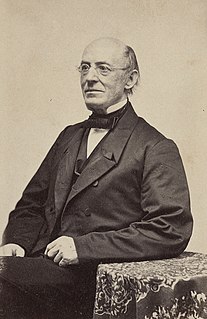A Quote by Ralph Waldo Emerson
He in whom the love of truth predominates . . . submits to the inconvenience of suspense and imperfect opinion; but he is a candidate for truth . . . and respects the highest law of his being.
Related Quotes
I don't think the law exists to arrive at the truth. If it did, we wouldn't have exclusionary rules, we wouldn't have presumptions of innocence, we wouldn't have proof beyond reasonable doubt. There's an enormous difference between the role of truth in law and the role of truth in science. In law, truth is one among many goals.
All the followers of science are fully persuaded that the processes of investigation, if only pushed far enough, will give one certain solution to each question to which they can be applied.... This great law is embodied in the conception of truth and reality. The opinion which is fated to be ultimately agreed to by all who investigate is what we mean by the truth, and the object represented in this opinion is the real.
We have hitherto considered only two possibilities: that the received opinion may be false, and some other opinion, consequently, true; or that, the received opinion being true, a conflict with the opposite error is essential to a clear apprehension and deep feeling of its truth. But there is a commoner case than either of these; when the conflicting doctrines, instead of being one true and the other false, share the truth between them.
Young people love what is interesting and odd, no matter how true or false it is. More mature minds love what is interesting and odd about truth. Fully mature intellects, finally, love truth, even when it appears plain and simple, boring to the ordinary person; for they have noticed that truth tends to reveal its highest wisdom in the guise of simplicity.
'In his celebrated book, 'On Liberty', the English philosopher John Stuart Mill argued that silencing an opinion is "a peculiar evil." If the opinion is right, we are robbed of the "opportunity of exchanging error for truth"; and if it's wrong, we are deprived of a deeper understanding of the truth in its "collision with error." If we know only our own side of the argument, we hardly know even that: it becomes stale, soon learned by rote, untested, a pallid and lifeless truth.'






































